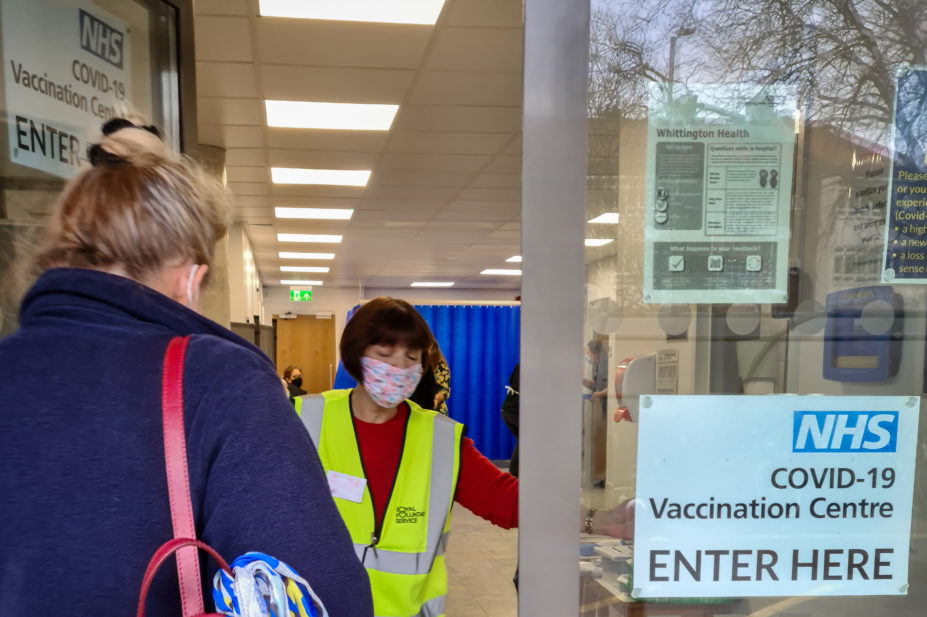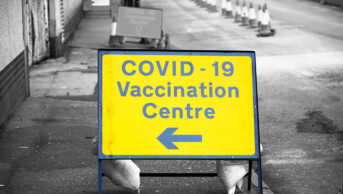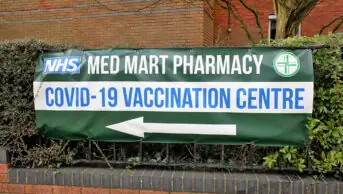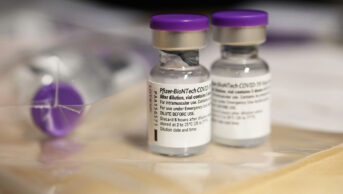
Shutterstock.com
All patients aged over 40 years are now eligible to receive COVID-19 booster doses across the UK, following advice from the Joint Committee on Vaccination and Immunisation (JCVI).
In its announcement of the decision on 15 November 2021, the JCVI also said that a second dose of the COVID-19 vaccine should be offered to those aged 16–17 years, who are not in an at-risk group.
This follows JCVI advice in August 2021 that those aged 16–17 years should receive their first dose of the COVID-19 vaccine.
The government launched a COVID-19 vaccine booster campaign in late September 2021, starting with patients aged over 50 years and those at risk of serious disease.
The expansion of the programme to include those aged 40–49 years will see the next cohort offered an mRNA booster jab — either the Pfizer-BioNTech or Moderna vaccine — six months after their second dose, irrespective of the vaccines given for the first and second doses.
According to the latest data published by NHS England, as of 13 October 2021, there were 1,160 community pharmacy-led COVID-19 vaccination sites in total.
However, the number of community pharmacy vaccination sites offering COVID-19 booster vaccines in England was expected to rise to 1,300 in the following weeks.
The JCVI advice was announced as the UK Health Security Agency (UKHSA) published the first data on booster vaccine effectiveness in the UK.
In a statement issued on 15 November 2021, the UKHSA said that analysis shows that people who receive a booster vaccine increase their protection against symptomatic COVID-19 infection to more than 90%, with protection against more severe disease expected to be even higher.
The JCVI is still reviewing evidence on whether booster jabs should be offered to patients aged under 40 years.
However, the JCVI’s announcement also recommended that those aged 16–17 years, who are not in an at-risk group, are offered a second dose of the Pfizer vaccine 12 weeks after the first dose.
The JCVI said the decision is based on a review of the latest evidence, which showed that a second dose “increases the level of protection and is important for extending the duration of protection”.
Wei Shen Lim, chair of COVID-19 immunisation for the JCVI, said: “Booster vaccine doses in more vulnerable adults, and second vaccine doses in 16 to 17-year-olds are important ways to increase our protection against COVID-19 infection and severe disease.
“These vaccinations will also help extend our protection into 2022.”
Sajid Javid, UK health and social care secretary, said the governments of all four devolved nations have accepted the JCVI’s advice “to extend the additional offer of a booster jab to people aged 40 and over and offer a second dose of a vaccine to all young people aged 16 to 17 as part of the primary vaccination schedule”.
As of 13 November 2021, 12.6 million people had received a booster dose, while 50.6 million people have had their first jab and 46 million people have had a second jab.
Read more: COVID-19 booster campaign: everything we know so far


